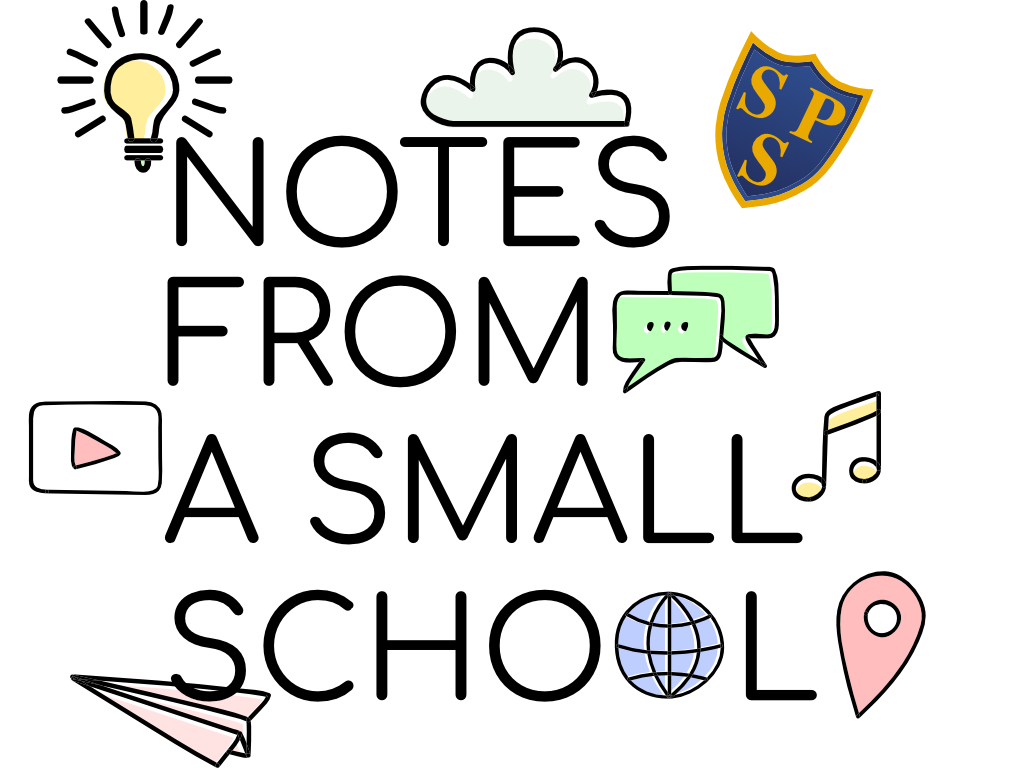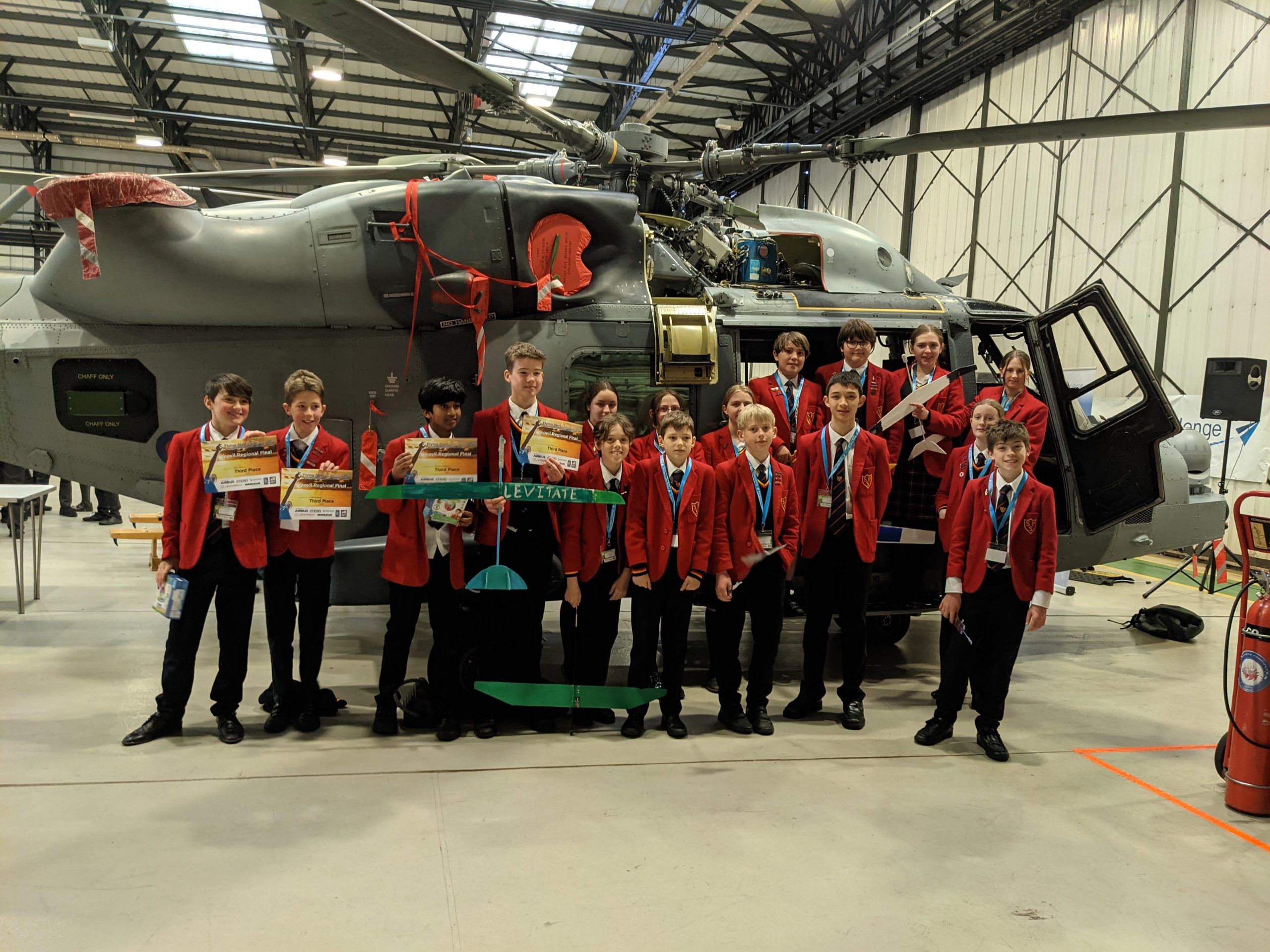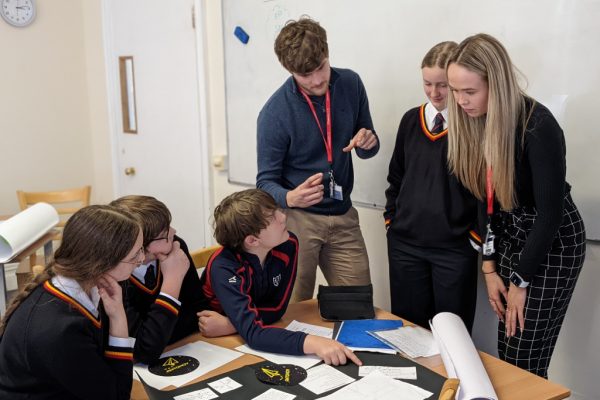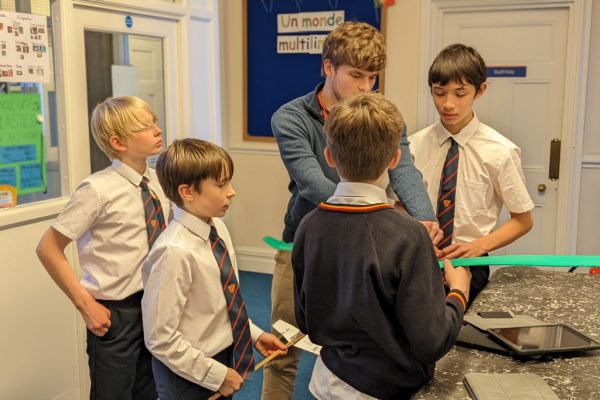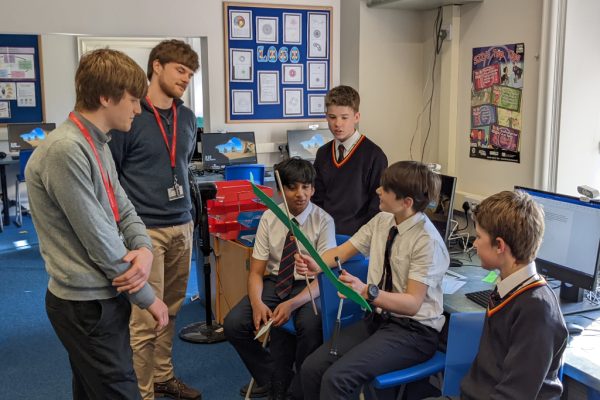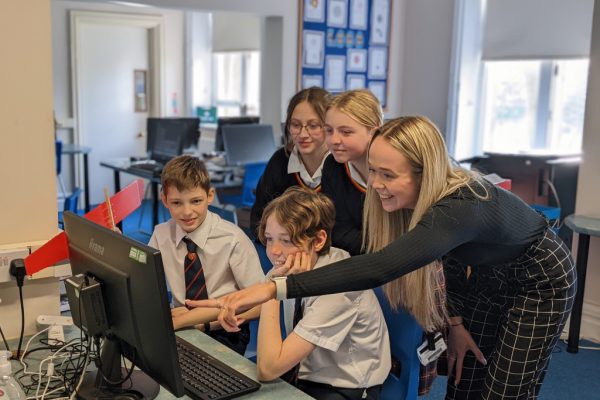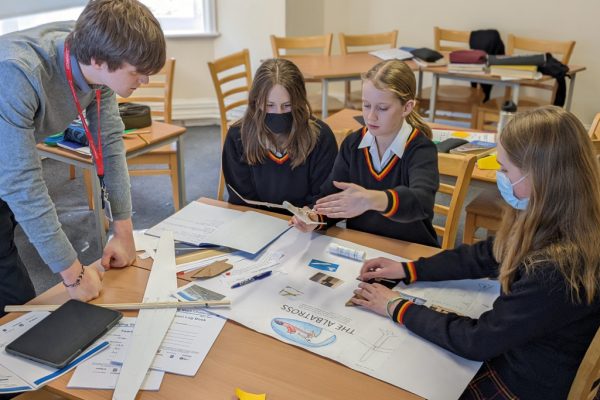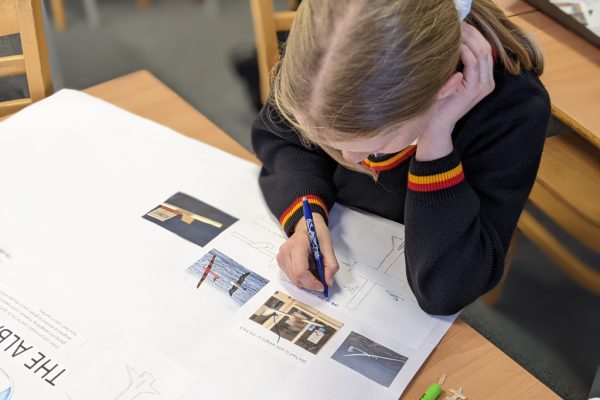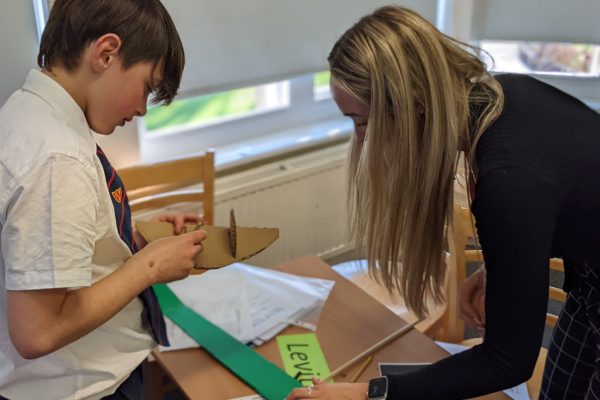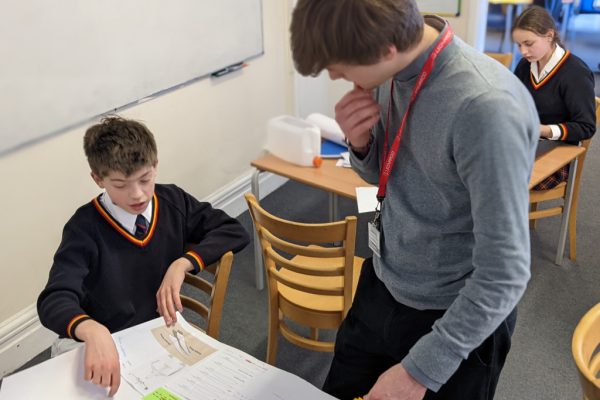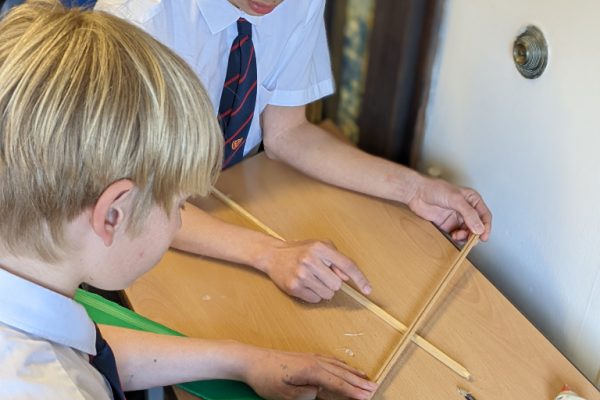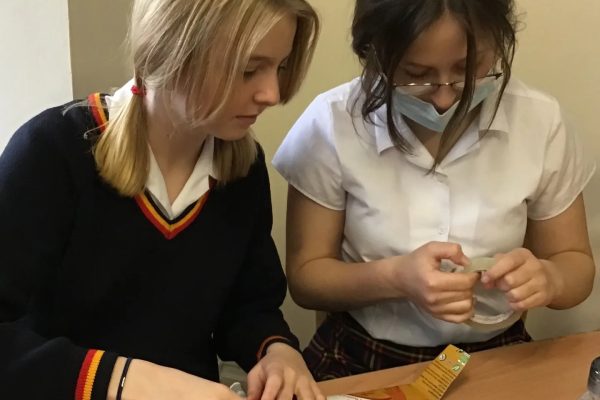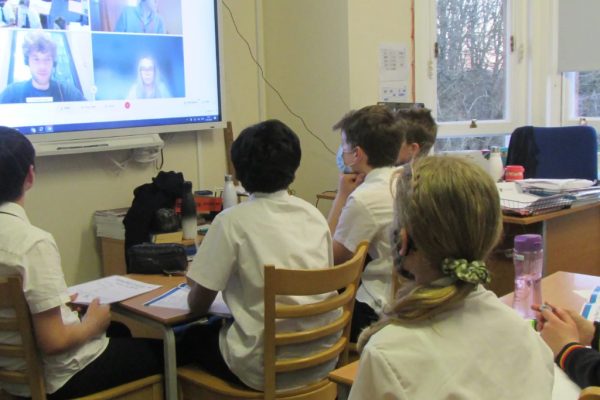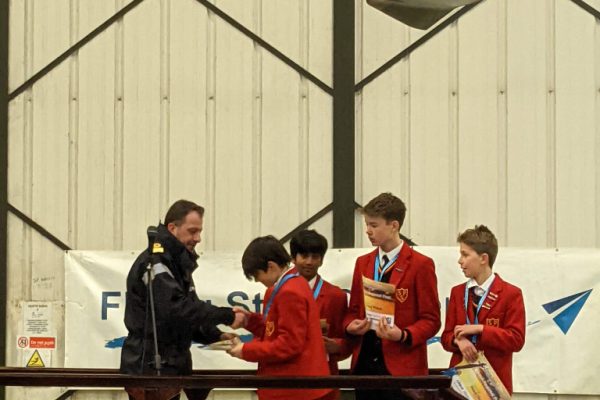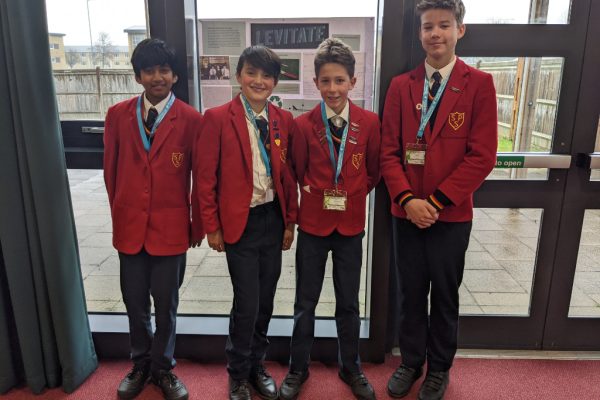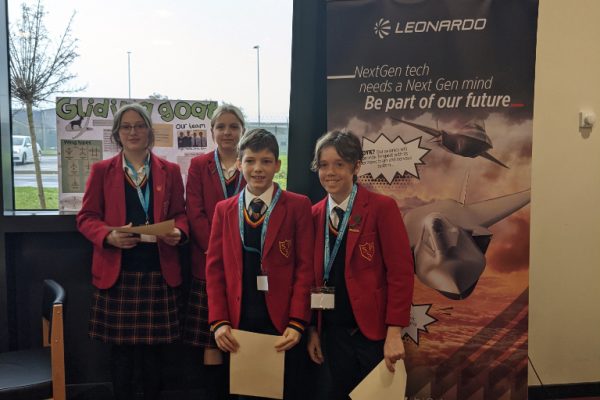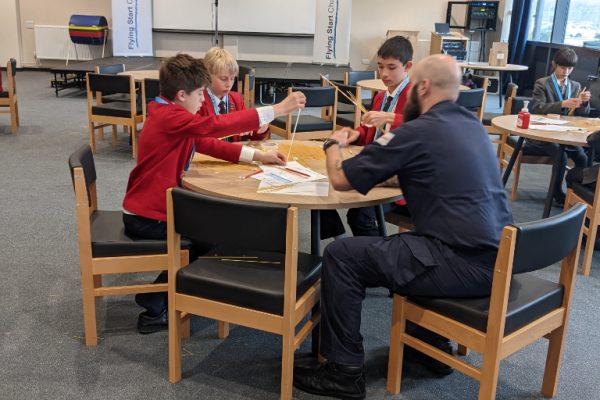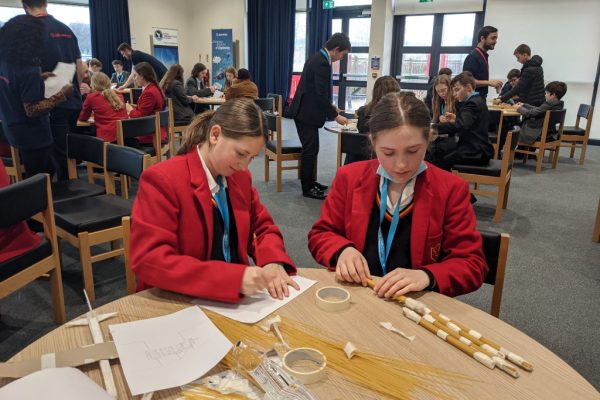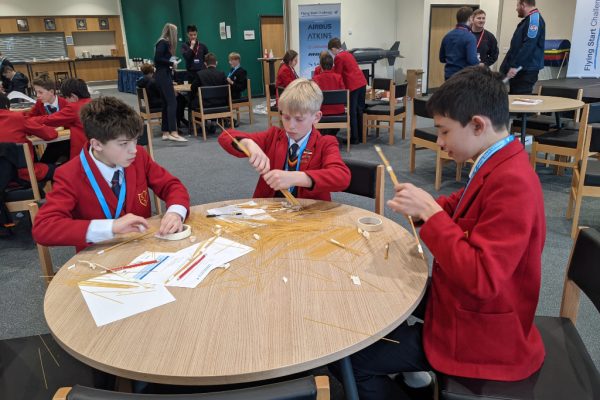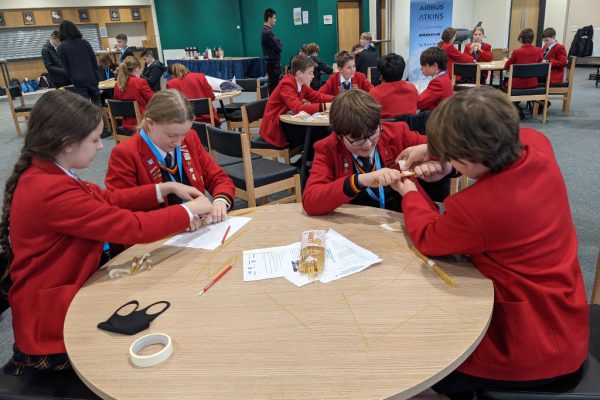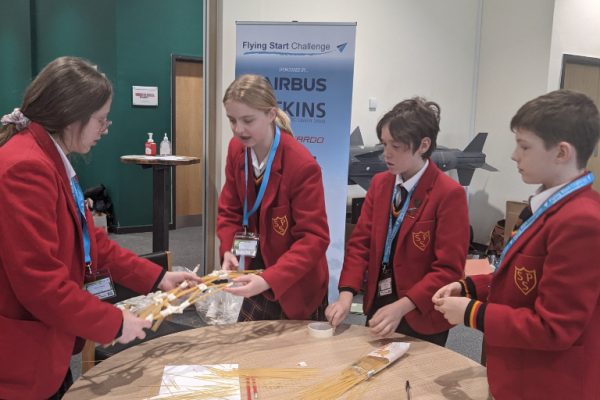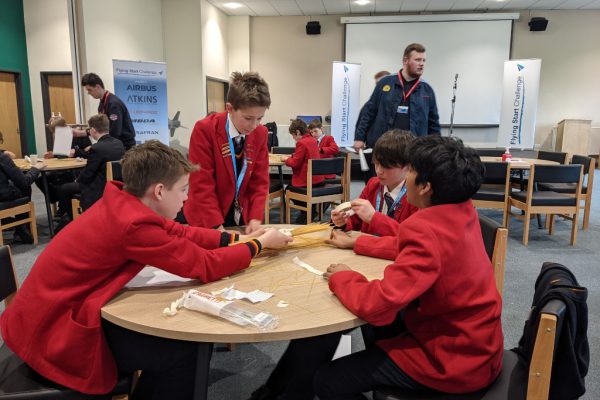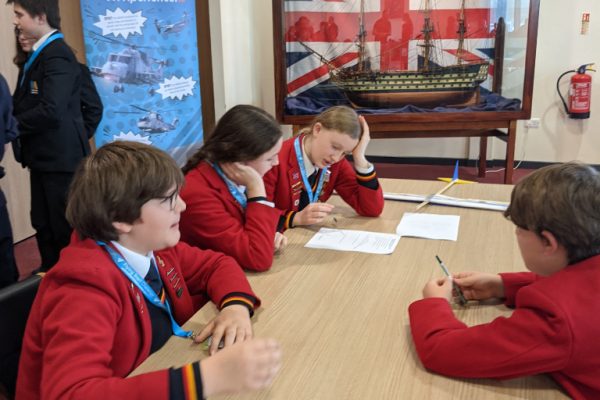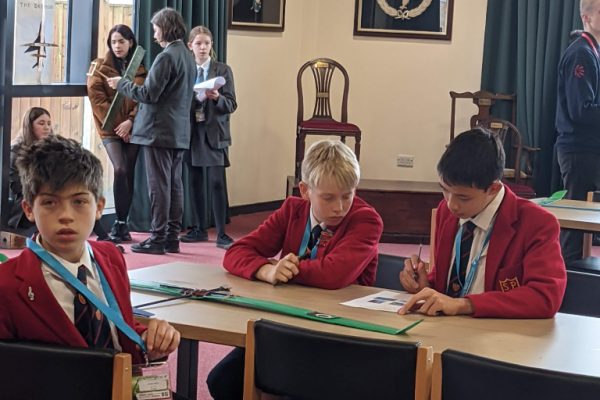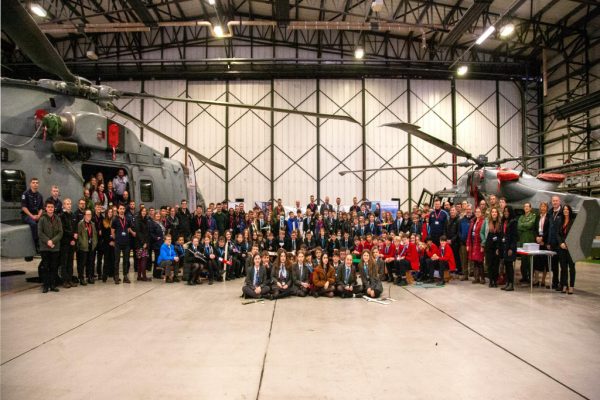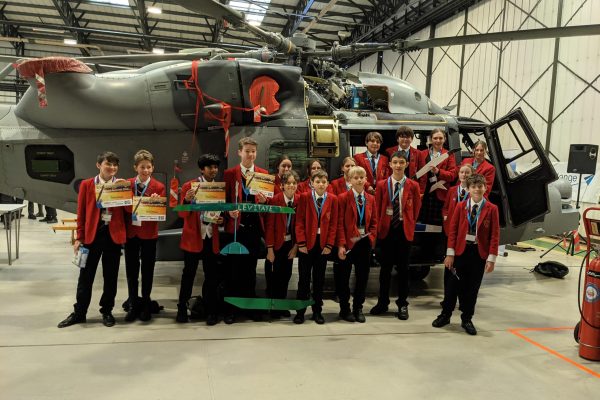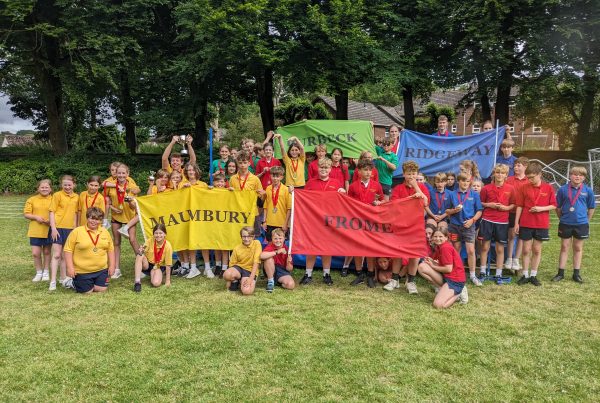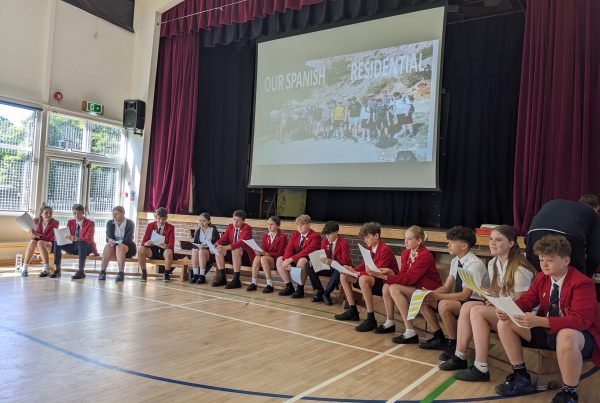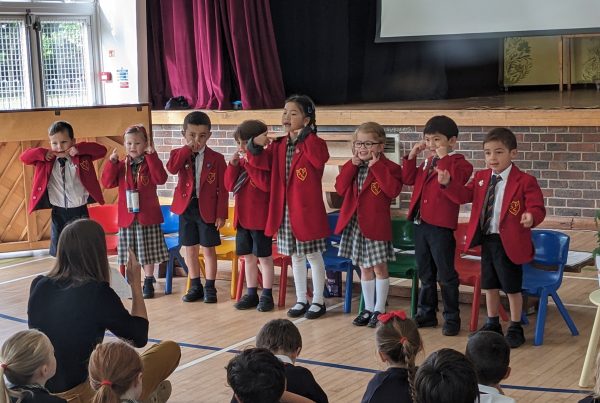What do Albatross, Antonov, The Sparrows, Gliding Goat and Levitate have in common?
If you answer, “They are the names of the SPS 2022 Flying Start teams”, you must have heard about the recent competition entered by all Form 8 pupils. Placed in one of five teams, their goal was to build a glider that flew as far and in as straight a line as possible, carrying a 60g payload, with a limited (fictional) budget and an even tighter deadline.
Flying Start Challenge is a STEM competition for local schools in the South West of England. The challenge is sponsored by six aerospace engineering companies: Airbus, Atkins, Leonardo, MBDA, Rolls-Royce and Safran Landing Systems.
The aim is to allow students to develop their knowledge of flight and get some hands on engineering experience; gaining a top level understanding of an engineering design and build process as well as building on their soft skills such as teamwork, communication and problem solving, whilst also having fun! Teams composed of four students design, build and test a model glider that they presented at their Regional Fly-Off day.
Back from their exciting day at the Regional Finals, they were asked a few questions.
How did you approach the challenge?
We decided on roles: I was assigned the job Head of Poster Design and Treasurer.
Some of us had shared roles, contributing to both poster designer and engineer. I was the treasurer, so I worked out costs and sorted out materials and budget. Although we all had separate roles, we all mixed in and took part in everything.
What did you enjoy the most?
I enjoyed working with my team, and especially creating the glider because it was something which I had not done before.
I was very proud of how our poster looked once finished. We spent a lot of time trying to make it visually appealing and informational.
Our presentation in front of the engineers.
What did you learn?
Engineers from Leonardo taught the knowledge required. The week before we went to the Yeovilton Naval Base for the competition, they came into school to look at our gliders and give us tips on how we could improve them.
I learnt about flight dynamics, the forces on a plane, what it needs to glide evenly and also the importance of teamwork. I wasn’t really expecting teamwork to be such an important aspect, but it really helped when we were all working together.
When our teamwork wasn’t at its best we didn’t make the best decisions. When we worked together, we got much more done. Working together also helped us think more logically.
What challenges did you overcome?
Our team manager was away for a few of the weeks, which slowed us down a bit – and we were already behind schedule.
At the start we had to make a decision about a radical idea from one of the team that the rest didn’t agree with. He suggested two sets of wings, but in the end we concluded that it would add drag and cost more.
A broken wing just before we headed to Yeovilton!
When we tested the plane it glided nicely, but we only flew it short distances. When we came to the competition we were expecting it to go far, but it didn’t.
For the first few weeks we were working quite slowly as we thought we had all the time we needed, but soon discovered we didn’t have as long as we thought. We were rushing to get it finished and we thought we wouldn’t do it, but we just about managed to.
We didn’t test the plane enough after adding the vertical stabilizer, so it was too heavy at the back.
Our stabilizer was also too heavy, which caused our plane to flip backward when flying, slowing it down and causing it to fall. We leveled it out a bit but we couldn’t perfect it in time for the competition.
The first materials that were used were over budget. The second time we made the glider, we used different materials, such as balsa and cardboard instead of plastic. I think our glider was the main priority and that is why we didn’t work as much on our poster; it still contained lots of information and the judge seemed very impressed.
And how about competition day?
There were many other schools there, from Years 7 to 9. The first challenge was a team quiz about flight and planes, then we had to present our posters to either an engineer or someone from the Army or Royal Navy. There was a competition which included making a bridge out of uncooked spaghetti. Weights were added until the bridge broke.
One spaghetti bridge supported 900g before falling down.
A bridge in another group only held 300g.
After lunch half of the teams flew their gliders and the other half were allowed to go into the helicopters. We were told about what they were used for and what it was like to travel on them. Once it was our turn the fly our glider we were all very nervous as this would be the result of two months’ work.
We took coaches to the hanger, which was on the other side of the town. There was a Merlin helicopter, and a Wildcat (based on the Lynx).
What did you gain most?
Being a part of the Flying Start Challenge was fun. We learnt many new things: the different parts of a plane, knowledge of flight dynamics, how to build a working glider and more.
I learned how to recognise problems and fix them, how to manage a team and how to work efficiently.
It was also a great experience being in a group for the project and working together.
I learnt many things, but I think the most important one was that teamwork really does make the dream work.
The engineers were really interesting to hear from. They helped a lot when we were designing our gliders and we got to hear about all the amazing things they’d made.
I enjoyed making the glider the most. Although there were a lot of difficulties and had to rebuild it twice, it was still enjoyable.
Going to Yeovil was fun. We got to ask Royal Navy personnel questions.
And what about your view of engineering?
Before flying start, I viewed engineering as just using tools to make things such as cars, but now I know that there are many more roles involved.
At the end of the project I realised that I had become more interested in engineering.
I definitely think that I am now more interested in engineering as a career.
Congratulations to Theo, Vishnu, Sam and Charlie who made up Team Levitate and were placed third overall at the Regional Finals. We eagerly await the next stage of the competition for successful teams, which will be the Grand Final, and 12 teams will compete for top STEM prizes.
I would like to thank Mr Salisbury for the help he gave the pupils during the Flying Start Challenge and also thanks must go to Mrs Smith and Mr Stazicker who took our young engineers to Yeovilton on competition day.
